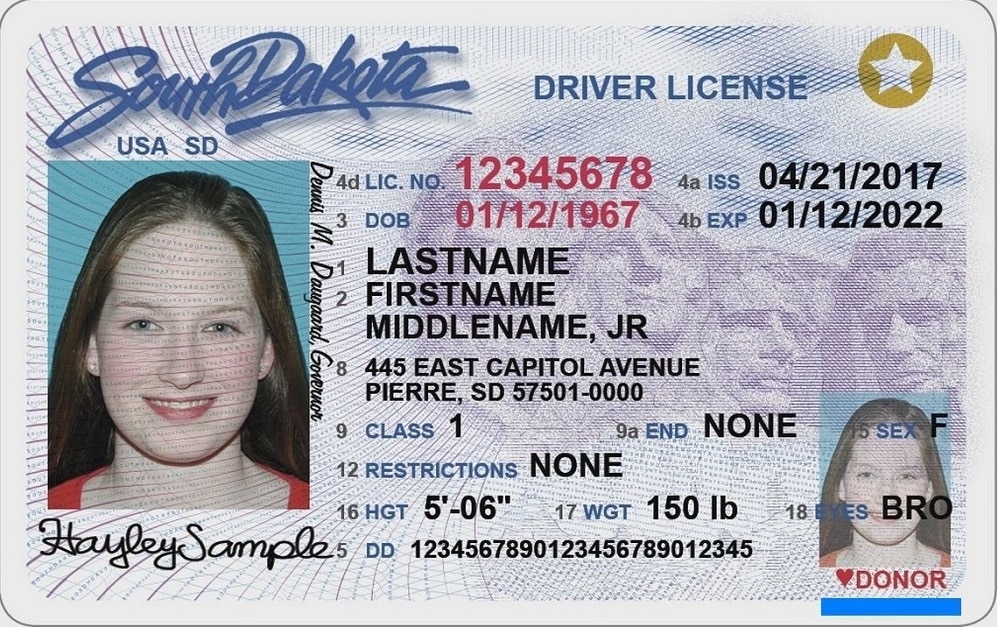Overview of South Dakota ID scanning laws
South Dakota has 4 laws which we consider relevant to ID verification, in addition to other laws which may related to age verification, identity verification, KYC, privacy, and biometrics.
Can you scan IDs in South Dakota?
Yes. There are no laws prohibiting or regulating the electronic scanning of an ID in South Dakota.
Can you save data from a scanned ID in South Dakota?
Yes. There are no current laws which limit or restrict saving data from a scanned ID in South Dakota.
Does South Dakota offer affirmative defense for ID scanning?
No. South Dakota has no affirmative defense laws related to ID scanning.
What types of IDs does South Dakota issue?
South Dakota issues drivers licenses and state IDs, including REAL ID, and CDLs. South Dakota does not issue non-domiciled CDLs.
Individual South Dakota ID verification laws
Age verification for alcohol sales
South Dakota requires that businesses verify age, but does not require electronic scanning or verification for alcohol sales.
Age verification for tobacco sales
South Dakota requires that businesses check ID but does not require electronic scanning or verification for tobacco sales.
Age verification for pornography
Starting July 1, 2025, websites featuring adult content will be required to verify that users are at least 18 years old before granting them access.
Proof of identity in North Dakota
Personal information may be disclosed provided it is for use by a government agency or in the normal course of business by a legitimate business to verify the accuracy of personal information.
Data privacy laws in South Dakota
South Dakota does not have any data privacy laws in effect or introduced. South Dakota does have a privacy-related data breach notification law, requiring businesses to notify consumers if their personal or protected information was obtained by an unauthorized person.





